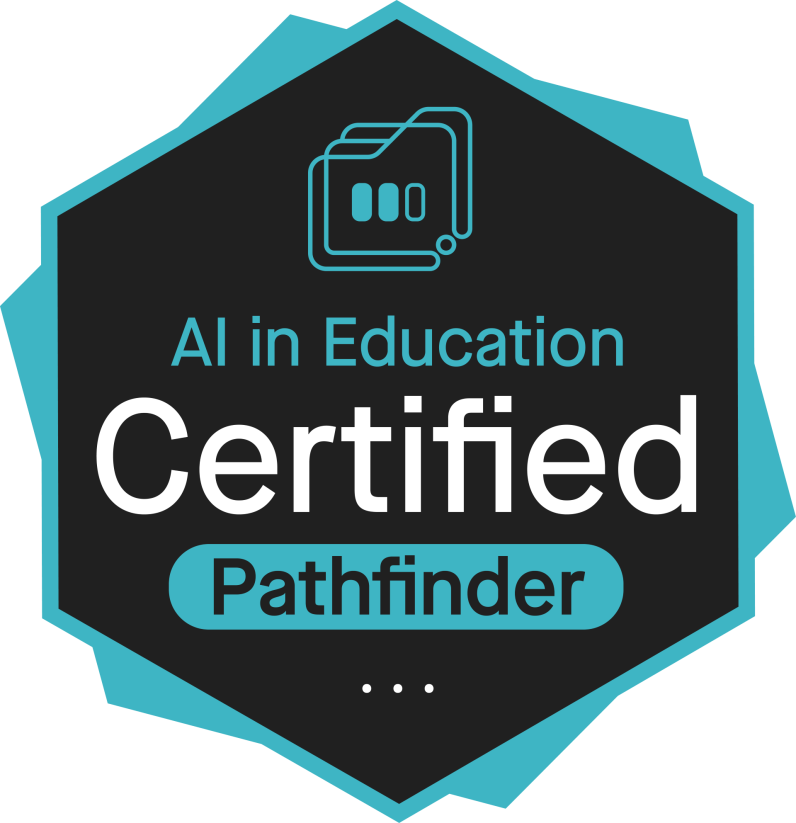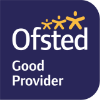PSHE
Intent
Our core aims for PSHE are to ensure that all children:
-
Acquire accurate and relevant knowledge and become critical thinkers.
-
Have opportunities to create personal understanding.
-
Acquire emotional literacy and self-regulation techniques.
-
Develop an emotional vocabulary which they can apply to their writing, reading and class discussions.
-
Have opportunities to explore and challenge a range of values, attitudes, beliefs, rights and responsibilities.
-
Adopt a range of skills and strategies to live a healthy, safe, fulfilling, responsible and balanced life.
-
Are taught to understand their place in the class, school and global community.
-
Learn about anti-bullying (including cyber and homophobic bullying) and diversity.
-
Learn how to set goals, create aspirations and work together.
-
Have drug and alcohol education and are encouraged to have high self-esteem and confidence levels as well as making healthy lifestyle choices.
-
Understand friendship, family and other relationships, conflict resolution and communication skills.
-
Are taught sex and relationships education in the context of coping positively with change (includes age-appropriate sex education).
Implementation
We are about to implement the Jigsaw scheme in PSHE. At Sayes Court we expect children to be positive role models and good citizens whilst showing an understanding of others around them. Children are encouraged to be active speakers and listeners during PSHE lessons whilst developing a sensitivity to others. Children take part in role-play and discussions and engage in a wide variety of problem-solving activities as well as recording ideas through written work. PSHE is seen around the school through displays including Zones of Regulation and Growth Mindset. Adults teach through high quality questioning, they have strong subject knowledge and take part in regular training.
What this looks like in practice:
-
All children in Nursery through to Year 6 take part in weekly PSHE sessions, which follows the national guidance.
-
There is a designated wellness session each week where children are able to take part in yoga, meditation or other wellness activities.
-
Each year group has six half-term units of work each containing six lessons.
-
Each year group studies the same unit at the same time facilitating whole school learning themes.
-
Each Term the school has a designated Habit for Successful Learners and children who follow these are added to the Wall of Recognition in their classrooms. These habits are: Self Love, Resilience and cooperation. They are introduced in assembly and explored further in class.
-
Each class teaches the Zones of Regulation and children and twice a day children are able to place themselves in the zone which best fits their mood at that time.
-
Children take place in circle time and group discussion. The ROCK rules ensure a safe learning environment within PSHE lessons.
-
There are NSPCC assemblies for the whole school and workshops for Years 5 & 6 on a 2 yearly cycle.
-
There is a designated school nurse who supports children’s mental and physical health.
Schemes, programme and resources used to support PSHE:
Jigsaw
NSPCC workshops
Zones of Regulation
To find out more about these schemes and programmes, click on the relevant links below:
Impact:
The impact of our PSHE curriculum allows children to:
-
Make good progress over time and achieve in line or above age-related expectations.
-
Develop a strong sense of who they are and how they can have a positive impact on the wider community.
-
Develop a strong moral understanding and uphold British Values.
-
Be able to express their feelings in a safe and constructive way.
-
Form strong, positive relationships with peers and adults whilst being able to resolve conflict.
SMSC in PSHE:
PSHE is at the heart of developing SMSC across the curriculum. Pupils understand their strengths and weaknesses and have a drive to succeed. They develop an understanding of the place they have in the wider world and gain the ability to ask fundamental questions. Children learn consequences of their actions and learn how to forgive themselves and others. Children learn to relate to those around them and work towards the common good, upholding British Values. Children are taught to celebrate differences between themselves and others and understand and respect the cultures of others.
Progression of Skills and Knowledge
|
Year group |
Year 1 |
Year 2 |
Year 3 |
Year 4 |
Year 5 |
Year 6 |
|
Keeping safe & managing Risk |
|
|
|
|
|
|
|
Drugs Alcohol & Tobacco Education |
|
|
|
|
|
|
|
Mental Health & Wellbeing |
|
|
|
Mental Health is covered in SRE |
|
|
|
Physical health and wellbeing |
|
|
|
|
|
|
|
Sex & Relationship Education |
|
|
|
|
|
|
|
Identity, society and equality |
|
|
|
|
|
|
|
Carrers, financial capability and economic wellbeing |
|
|
|
|
|
Healthy Relationships and How a Baby is Made |
PSHE Topics by Year Group
|
Year group |
Nursery |
Reception |
Year 1 |
Year 2 |
Year 3 |
Year 4 |
Year 5 |
Year 6 |
|
Autumn 1 |
Being Me In My World Value – Respect, individual liberty, rule of law Learning Habit - reflection EDI – Equality |
Being Me In My World Value – Respect, individual liberty, rule of law Learning Habit - reflection EDI - Equality |
Being Me In My World Value – Respect, individual liberty, rule of law Learning Habit - reflection EDI – Equality |
Being Me In My World Value – Respect, individual liberty, rule of law Learning Habit - reflection EDI - Equality |
Being Me In My World Value – Respect, individual liberty, rule of law Learning Habit - reflection EDI - Equality |
Being Me In My World Value – Respect, individual liberty, rule of law Learning Habit - reflection EDI - Equality |
Being Me In My World Value – Respect, individual liberty, rule of law Learning Habit - reflection EDI - Equality |
Being Me In My World Value – Respect, individual liberty, rule of law Learning Habit - reflection EDI - Equality |
|
Autumn 2 |
Celebrating differences Value – Tolerance, democracy, mutual respect Learning Habit - cooperation EDI – Diversity |
Celebrating differences Value – Tolerance, democracy, mutual respect Learning Habit - cooperation EDI – Diversity |
Celebrating differences Value – Tolerance, democracy, mutual respect Learning Habit - cooperation EDI – It’s okay to be different book – Tod Parr |
Celebrating differences Value – Tolerance, democracy, mutual respect Learning Habit - cooperation EDI - Diversity |
Celebrating differences Value – Tolerance, democracy, mutual respect Learning Habit - cooperation EDI - Diversity |
Celebrating differences Value – Tolerance, democracy, mutual respect Learning Habit - cooperation EDI – Harriet Tubman (Little People, Big Dreams) |
Celebrating differences Value – Tolerance, democracy, mutual respect Learning Habit - cooperation EDI - Diversity |
Celebrating differences Value – Tolerance, democracy, mutual respect Learning Habit - cooperation EDI - Nelson Mandela (Little People, Big Dreams) |
|
Spring 1 |
Dreams and goals Value – Individual liberty Learning Habit – resilience, responsibility EDI – Rosa Parks (Little People, Big Dreams) |
Dreams and goals Value – Individual liberty Learning Habit – resilience, responsibility EDI - Rosa Parks (Little People, Big Dreams) |
Dreams and goals Value – Individual liberty Learning Habit – resilience, responsibility EDI – Rudolf Nureyev (Little People, Big Dreams) |
Dreams and goals Value – Individual liberty Learning Habit – resilience, responsibility EDI - Corozon Aquino (Little People, Big Dreams) |
Dreams and goals Value – Individual liberty Learning Habit – resilience, responsibility EDI – Emmeline Pankhurst (Little People, Big Dreams) |
Dreams and goals Value – Individual liberty Learning Habit – resilience, responsibility EDI – Malala Yousafzai (Little People, Big Dreams) |
Dreams and goals Value – Individual liberty Learning Habit – resilience, responsibility EDI – Greta Thunberg (Little People, Big Dreams) |
Dreams and goals Value – Individual liberty Learning Habit – resilience, responsibility EDI – Ruth Bader Ginsburg (Little People, Big Dreams) |
|
Spring 2 |
Healthy Me Value – Respect Learning Habit –responsibility EDI – Marcus Rashford (Little People, Big Dreams) |
Healthy Me Value – Respect Learning Habit –responsibility EDI - Marcus Rashford (Little People, Big Dreams) |
Healthy Me Value – Respect Learning Habit –responsibility EDI – Pele (Little People, Big Dreams) |
Healthy Me Value – Respect Learning Habit –responsibility EDI – Billie Jean King (Little People, Big Dreams) |
Healthy Me Value – Respect Learning Habit –responsibility EDI – Bruce Lee (Little People, Big Dreams) |
Healthy Me Value – Respect Learning Habit –responsibility EDI – Megan Rapinoe (Little People, Big Dreams) |
Healthy Me Value – Respect Learning Habit –responsibility EDI – Jesse Owens (Little People, Big Dreams) |
Healthy Me Value – Respect Learning Habit –responsibility EDI – Michael Jordan (Little People, Big Dreams) |
|
Summer 1 |
Relationships Value – Tolerance, respect, Learning Habit – cooperation EDI – Martin Luther King (Little People, Big Dreams) |
Relationships Value – Tolerance, respect, Learning Habit – cooperation EDI - Martin Luther King (Little People, Big Dreams) |
Relationships Value – Tolerance, respect, Learning Habit – cooperation EDI - Inclusion |
Relationships Value – Tolerance, respect, Learning Habit – cooperation EDI - Inclusion |
Relationships Value – Tolerance, respect, Learning Habit – cooperation EDI - Inclusion |
Relationships Value – Tolerance, respect, Learning Habit – cooperation EDI - Inclusion |
Relationships Value – Tolerance, respect, Learning Habit – cooperation EDI - Inclusion |
Relationships Value – Tolerance, respect, Learning Habit – cooperation EDI - Inclusion |
|
Summer 2 |
Changing Me Value – respect Learning Habit – responsibility EDI – Diversity |
Changing Me Value – respect Learning Habit – responsibility EDI - Diversity |
Changing Me Value – respect Learning Habit – responsibility EDI - Diversity |
Changing Me Value – respect Learning Habit – responsibility EDI - Diversity |
Changing Me Value – respect Learning Habit – responsibility EDI - Diversity |
Changing Me Value – respect Learning Habit – responsibility EDI - Diversity |
Changing Me Value – respect Learning Habit – responsibility EDI - Diversity |
Changing Me Value – respect Learning Habit – responsibility EDI - Diversity |







